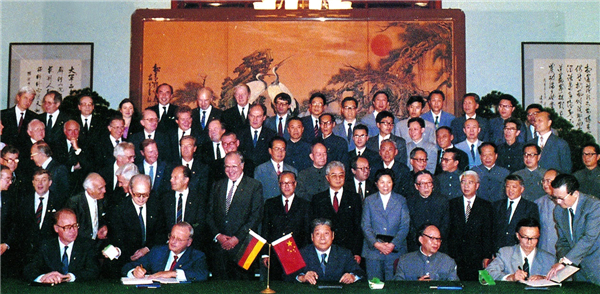
2018-10-10 08:40:33
From:english.eastday.com
Wu Qiong
CEO of Volkswagen China: openness and competition drives innovation and future
Basis of Volkswagen’s success in China
The story goes back to 1978. To earn foreignexchangethrough export, China decided to introduce a car assembly line to Shanghai. In November, then Vice Chairman of the Central Committee Deng Xiaoping ordered the implementation of car projects in Shanghai in the form of joint ventures. Before long, the Chinese machinery industry delegation paid a visit to the headquarters of Volkswagen Group, which was the beginning of more than 30 negotiations which lasted as long as six years. Topics to be negotiated ranged from joint venture law and foreign exchange payment to technology transfer.
Eventually, the two sides agreed on the first Sino-foreign joint venture in the machinery industry - Shanghai Volkswagen Automotive Co., Ltd. (Shanghai Volkswagen, now renamed SAIC Volkswagen)- with an investment proportion of 50:50. SAIC Volkswagen was the first Sino-German joint venture in China, whose success has set an example for all joint ventures in the automobile industry.

(The joint-venture agreement for SAIC Volkswagen was signed at the Great Hall of the People in Beijing on October 10, 1984. Photo provided by Volkswagen Group China)
In the early 1980s, foreign companies did not have much interest in the Chinese auto market, which they believed was immature for developing the sedan sector. After all, China’s GDP per capita was only around 200 US dollars, and before Volkswagen entered the Chinese market, China's car usage rate was extremely low (for every 2,500 citizens, there was 1 car). However, Volkswagen was willing to provide its advanced technology and partner with China in the form of a joint venture.
Recalling the strategic decision made by Volkswagen, Prof. Heizmann is full of gratitude and respect, believing that was the cornerstone of Volkswagen’s success in China. In the early 1980s and the early 1990s, from the establishment of SAIC in the South of China to the founding of FAW in the North, Volkswagen has undergone tremendous growth in China as the country has adhered to the policy of reform and opening up.
In his opinion, the joint venture is the result of a forward-thinking decision. “I'm sure nobody at that time had in mind that we could sell last year (2017) over more than 4 million cars, so this was far away from any perspective in the 80s.”
